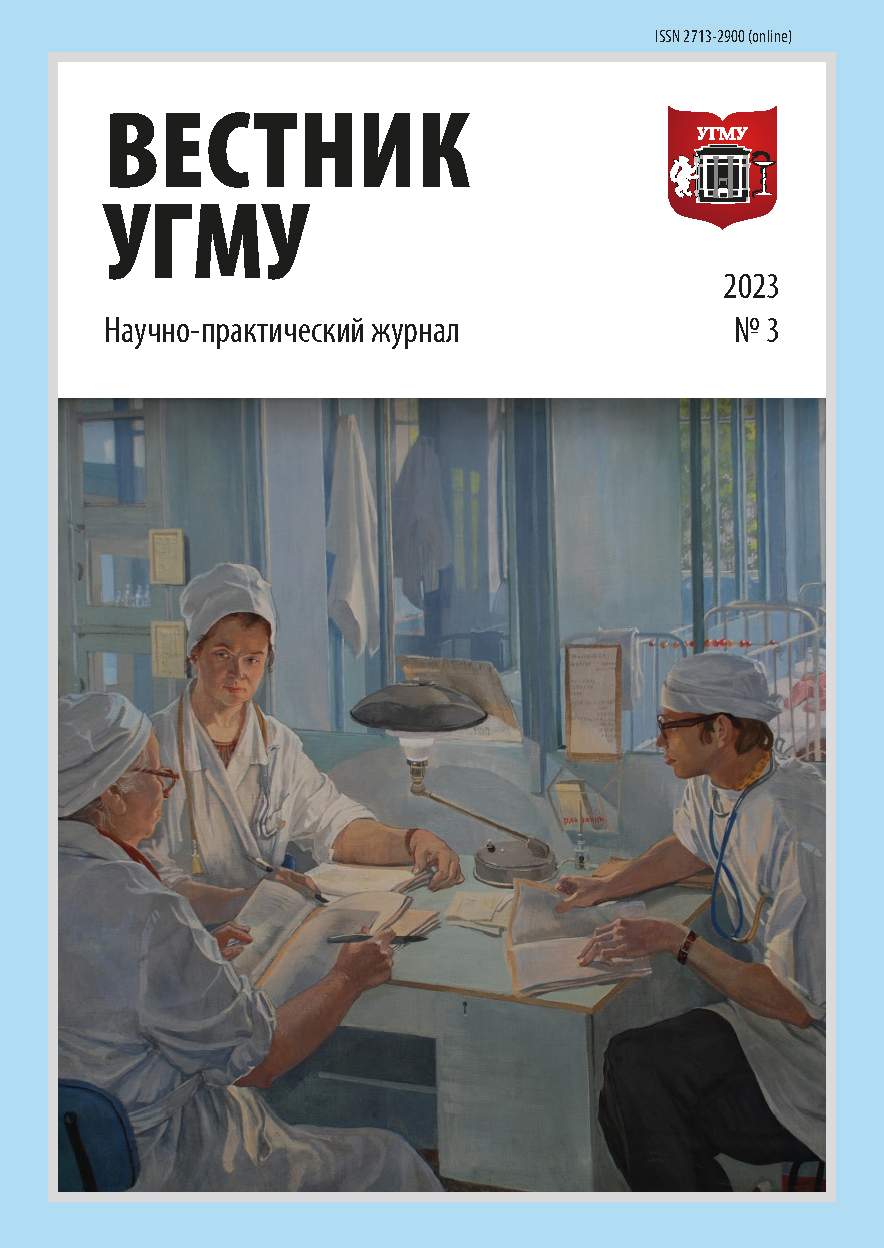Abstract
Modern scientific communication is characterized by an appeal to digital technologies. In order to improve their scientometric indicators, researchers and institutions are required to use various tools to promote their work in the scientific community, especially identifiers. One of them is ORCID, which is highly appreciated by specialists engaged in scientific communication, including in the field of biomedicine. Thus, the researcher’s identifier, thanks to its capabilities (for example, integration with publishing platforms and scientometric databases), allows you to more accurately establish the metadata of materials, which reduces the risks of erroneous authorship. In addition, ORCID increases the coverage of the dissemination of research, which can positively affect the scientometric indicators of the scientist and the organization he represents. Currently, many Russian authors do not pay attention to the importance of their digital footprint, in particular ORCID, to promote their own works. The material presents some features of the researcher’s identifier, which are an important component of modern scientific communication, as well as instructions for registration in the ORCID system.
For citation
Rovnushkina EV, Potashev KA. On the need for ORCID to promote modern biomedical research. Bulletin of USMU. 2023;(3):89–103. (In Russ.). EDN: https://elibrary.ru/YGHNLG.
References
Гуськов А. Е., Шрайберг Я. Л. Вызовы для развития наукометрических исследований // Научные и технические библиотеки. 2023. № 2. С. 37–58. DOI: https://doi.org/10.33186/1027-3689-2023-2-37-58.
Казакова А. А., Ойнац С. Н. К вопросу о наукометрических показателях при оценке научно-исследовательской деятельности // Наукосфера. 2022. № 7 (1). С. 46–51. EDN: https://elibrary.ru/azbubk.
Зайцева Е. М. Тенденции развития систем идентификации в библиотечно-информационной сфере // Библиотеки. Экология. Устойчивое развитие : ежегод. межведомств. сб. науч. тр. М. : Гос. публич. науч.-техн. б-ка России, 2020. С. 94–102. EDN: https://elibrary.ru/kraqov.
Якимчик А. И. Базы данных цитирований и идентификаторы исследователей // Геофизический журнал. 2020. Т. 42, № 3. С. 78–108. DOI: https://doi.org/10.24028/gzh.0203-3100.v42i3.2020.204703.
Анализ влияния показателей интернационализации на рейтинговые оценки российских вузов / Ю. А. Шакирова, И. Л. Щетникова, А. Ф. Гаряева, А. А. Шугаепова // Университетское управление: практика и анализ. 2016. № 6. С. 111–119. DOI: https://doi.org/10.15826/umj.2016.106.065.
Донецкая С. С. Международные рейтинги: анализ текущих позиций и перспективы российских университетов // Университетское управление: практика и анализ. 2013. № 5. С. 111–121. EDN: https://elibrary.ru/rvqmfd.
Kim J., Owen-Smith J. ORCID-Linked Labeled Data for Evaluating Author Name Disambiguation at Scale // Scientometrics. 2021. Vol. 126, Iss. 3. P. 2057–2083. DOI: https://doi.org/10.1007/s11192-020-03826-6.
Gomez C. J., Herman A. C., Parigi P. Moving More, but Closer: Mapping the Growing Regionalization of Global Scientific Mobility using ORCID // Journal of Informetrics. 2020. Vol. 14, Iss. 3, Art. No. 101044. DOI: https://doi.org/10.1016/j.joi.2020.101044.
Marín-Arraiza P. ORCID in the Open Science Scenario: Opportunities for Academic Libraries // Mitteilungen der Vereinigung Österreichischer Bibliothekarinnen & Bibliothekare. 2019. Bd. 72, Nr. 2. S. 478–493. DOI: https://doi.org/10.31263/voebm.v72i2.2811.
Haak L. L., Meadows A., Brown J. Using ORCID, DOI, and Other Open Identifiers in Research Evaluation // Frontiers in Research Metrics and Analytics. 2018. Vol. 3, Iss. 28. DOI: https://doi.org/10.3389/frma.2018.00028.
Supak-Smolcic V., Simundic A.-M., Lundberg G. D. Identification of Authors Without Surnames: Is ORCID the Right Way Forward? // Biochemia Medica. 2016. Vol. 26, Iss. 2. P. 147–149. DOI: https://doi.org/10.11613/BM.2016.014.
Systematic and Open Identification of Researchers and Authors: Focus on Open Researcher and Contributor ID / A. Yu. Gasparyan, N. A. Akazhanov, A. A. Voronov, G. D. Kitas // Journal of Korean Medical Science. 2014. Vol. 29, No. 11. P. 1453–1456. DOI: https://doi.org/10.3346/jkms.2014.29.11.1453.
Прокофьева Ю. Д. Профиль научной организации и профиль автора как разновидность интернет-представительства // Труды ГПНТБ СО РАН. 2022. № 4. С. 45–53. DOI: https://doi.org/10.20913/2618-7515-2022-4-45-53.
Судакова А. Е. Миграция ученых: цифровой след и наукометрия // Перспективы науки и образования. 2020. № 3 (45). С. 544–557. DOI: https://doi.org/10.32744/pse.2020.3.39.
Койков В. В. Роль профессиональных научных сетей в развитии международной коммуникации исследователей и формировании бренда ученого // Journal of Health Development. 2018. Т. 2, № 27. С. 32–40. EDN: https://elibrary.ru/uzqfuh.
Open Researcher and Contributor ID. URL: https://orcid.org/ (date of access: 27.10.2023).
ORCID Coverage in Research Institutions — Readiness for Partially Automated Research Reporting / K. Schnieders, S. Mierz, S. Boccalini [et al.] // Frontiers in Research Metrics and Analytics. 2022. Vol. 7, Art. No. 1010504. DOI: https://doi.org/10.3389/frma.2022.1010504.
Citrome L. Open Researcher and Contributor ID: ORCID Now Mandatory for Wiley Journals // International Journal of Clinical Practice. 2016. Vol. 70, Iss. 11. P. 884–885. DOI: https://doi.org/10.1111/ijcp.12912.
ORCID: A System to Uniquely Identify Researchers / L. L. Haak, M. Fenner, L. Paglione [et al.] // Learned Publishing. 2012. Vol. 25, Iss. 24. P. 245–318. DOI: https://doi.org/10.1087/20120404.
Cress P. E. Why Do Academic Authors Need an ORCID ID? // Aesthetic Surgery Journal. 2019. Vol. 39, Iss. 6. P. 696–697. DOI: https://doi.org/10.1093/asj/sjz042.
Talamini M. A., Hanna G. B. Open Researcher and Contributor ID (ORCID): Vital for Surgical Endoscopy // Surgical Endoscopy. 2017. Vol. 31, Iss. 9. P. 3411. DOI: https://doi.org/10.1007/s00464-017-5814-4.
Leopold S. S. Editorial: ORCID is a Wonderful (But not Required) Tool for Authors // Clinical Orthopaedics and Related Research. 2016. Vol. 474, Iss. 5. P. 1083–1085. DOI: https://doi.org/10.1007/s11999-016-4760-0.
Anstey A. How Can We Be Certain Who Authors Really Are? Why ORCID is Important to the British Journal of Dermatology // British Journal of Dermatology. 2014. Vol. 171, Iss. 4. P. 679–680. DOI: https://doi.org/10.1111/bjd.13381.
Лоскутова Т. А. Ошибки российских авторов при регистрации и заполнении учетных записей ORCID: разбор реальных случаев // Научный редактор и издатель. 2021. Т. 6, № 2. С. 119–130. DOI: https://doi.org/10.24069/SEP-21-11.
Сэдлер Ш. Идентификатор ORCID и его использование в системе OJS для точного установления авторства научных работ // Научный редактор и издатель. 2021. Т. 6, № 2. С. 113–118. DOI: https://doi.org/10.24069/SEP-21-05.
Academia. URL: https://www.academia.edu/ (date of access: 30.10.2023).
ResearchGate. URL: https://www.researchgate.net/ (date of access: 30.10.2023).
Google Академия. URL: https://scholar.google.com/ (date of access: 30.10.2023).
Boudry C., Durand-Barthez M. Use of Author Identifier Services (ORCID, ResearcherID) and Academic Social Networks (Academia.edu, ResearchGate) by the Researchers of the University of Caen Normandy (France): A Case Study // PLOS ONE. 2020. Vol. 15, Iss. 9, Art. No. e0238583. DOI: https://doi.org/10.1371/journal.pone.0238583.

This work is licensed under a Creative Commons Attribution-NonCommercial-NoDerivatives 4.0 International License.
Copyright © 2023 Rovnushkina E. V., Potashev K. A.


